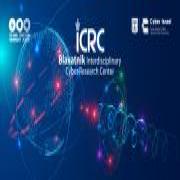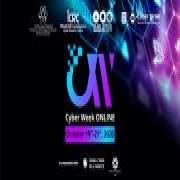TAU Blavatnik ICRC rigorous scientific research directly impacts policy
The July 2018 U.S. Securities and Exchange Commission (SEC) ruling to reject Bitcoin Exchange Traded Fund (ETF) is based upon the findings of TAU Blavatnik ICRC Prof. Neil Gandal and partners.
The U.S. Securities and Exchange Commission (SEC) has set a much-needed precedent for world’s financial markets and regulators in its July 26th ruling to reject the Bitcoin (BTC) Exchange Traded Fund (ETF).
Bitcoin is the first decentralized digital cryptocurrency. Released in 2009, BTC is still the most valuable of some 1500 competing cryptocurrencies. The Bitcoin billionaires Cameron and Tyler Winklevoss submitted the proposal to establish a Bitcoin ETF to the SEC for regulatory approval.
The mission of the U.S. SEC is to protect investors, maintain fair, orderly, and efficient markets and facilitate capital formation. SEC actions derive from a straightforward concept: all investors should have access to certain basic facts about an investment before buying it and so long as they hold it. The stakes are high: stocks, bonds and other securities can lose value, in part as a result of manipulation. Each year the SEC brings hundreds of civil enforcement actions against individuals and companies for violating securities laws.
The SEC ruling is based upon the findings of the TAU ICRC study “Shocks to and Security in the Bitcoin Ecosystem: An Interdisciplinary Approach” by TAU Prof. Neil Gandal and partners. The research, funded in the 2016 round, uncovered how a single actor likely drove the USD/BTC exchange rate from $150 to $1000 in 2 months.
Contrary to utopian proclamations on cryptocurrencies, Gandal and Moore demonstrated through rigorous analysis with extensive robustness checks how the Bitcoin ecosystem has been profoundly vulnerable to bad actors. Moreover, the bad actor manipulated the market through fraudulent acquisition (without spending money) of approximately 600,000 bitcoins (BTC) valued at $188 million. Quoting the Blavatnik ICRC researchers: “As mainstream finance invests in cryptocurrency assets and as countries take steps toward legalizing bitcoin as a payment system (as Japan did in April 2017), it is important to understand how susceptible cryptocurrency markets are to manipulation.” Attesting to the research excellence of the study, the results were presented at The Workshop on the Economics of Information Security (WEIS), published by the Journal of Monetary Economics and the Journal of Cybersecurity. The SEC ruling directly cites two articles authored by the TAU Blavatnik ICRC research team.
TAU Blavatnik ICRC is proud to make a great impact within the scientific community as well as in the transforming areas of practice as the digital transformation progresses.





